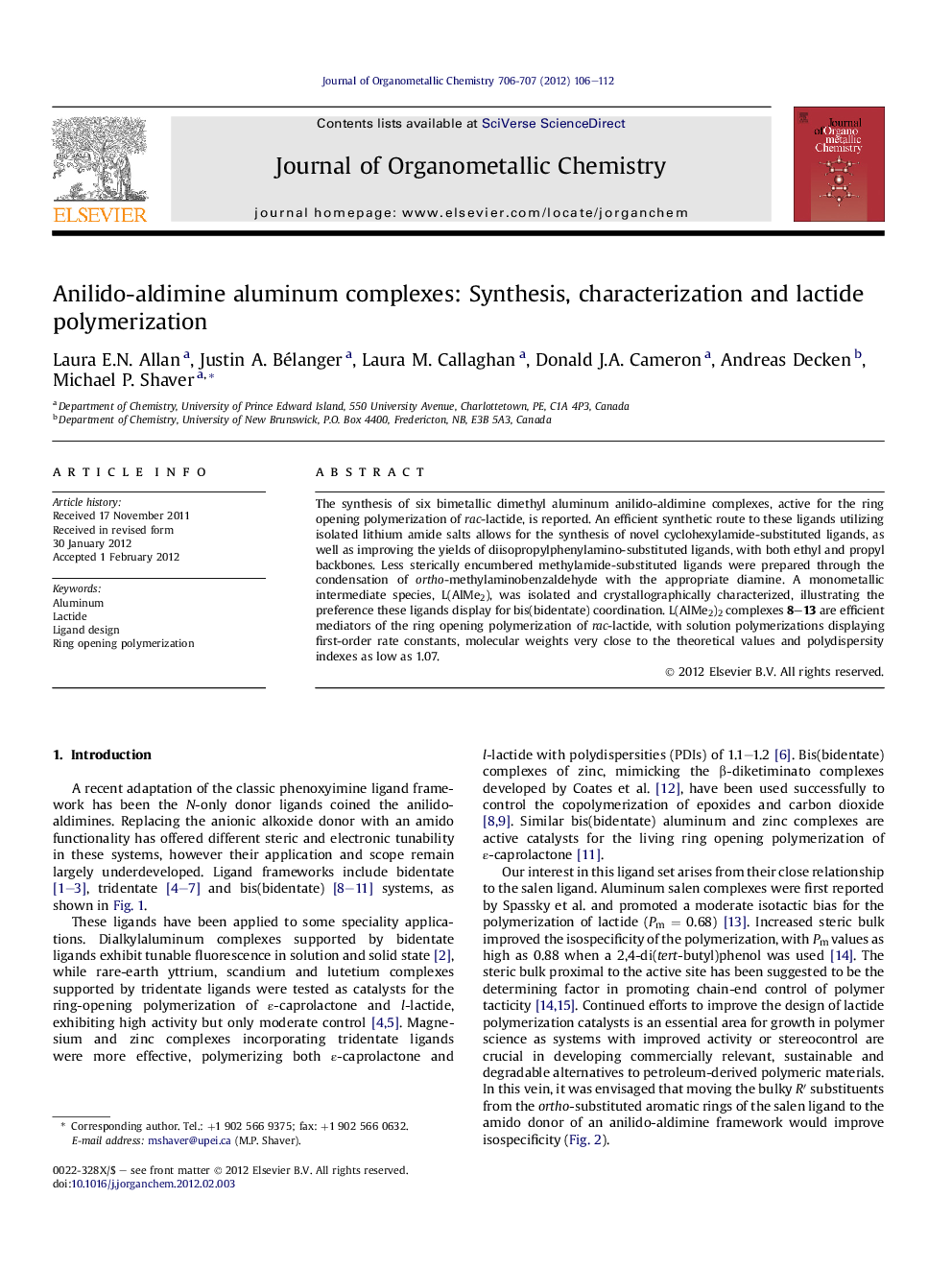| Article ID | Journal | Published Year | Pages | File Type |
|---|---|---|---|---|
| 1323312 | Journal of Organometallic Chemistry | 2012 | 7 Pages |
The synthesis of six bimetallic dimethyl aluminum anilido-aldimine complexes, active for the ring opening polymerization of rac-lactide, is reported. An efficient synthetic route to these ligands utilizing isolated lithium amide salts allows for the synthesis of novel cyclohexylamide-substituted ligands, as well as improving the yields of diisopropylphenylamino-substituted ligands, with both ethyl and propyl backbones. Less sterically encumbered methylamide-substituted ligands were prepared through the condensation of ortho-methylaminobenzaldehyde with the appropriate diamine. A monometallic intermediate species, L(AlMe2), was isolated and crystallographically characterized, illustrating the preference these ligands display for bis(bidentate) coordination. L(AlMe2)2 complexes 8–13 are efficient mediators of the ring opening polymerization of rac-lactide, with solution polymerizations displaying first-order rate constants, molecular weights very close to the theoretical values and polydispersity indexes as low as 1.07.
Graphical abstractBimetallic aluminum complexes supported by anilido-aldimine ligands are efficient catalysts for lactide polymerization.Figure optionsDownload full-size imageDownload as PowerPoint slideHighlights► Preparation of six anilido-aldimine ligand frameworks. ► Ligands favour bis(bidentate) binding to aluminum. ► Bimetallic aluminum complexes active in lactide polymerization. ► Control indicated by low polydispersities and linear reaction kinetics. ► Molecular weights suggest both aluminum centres active in polymerization.
